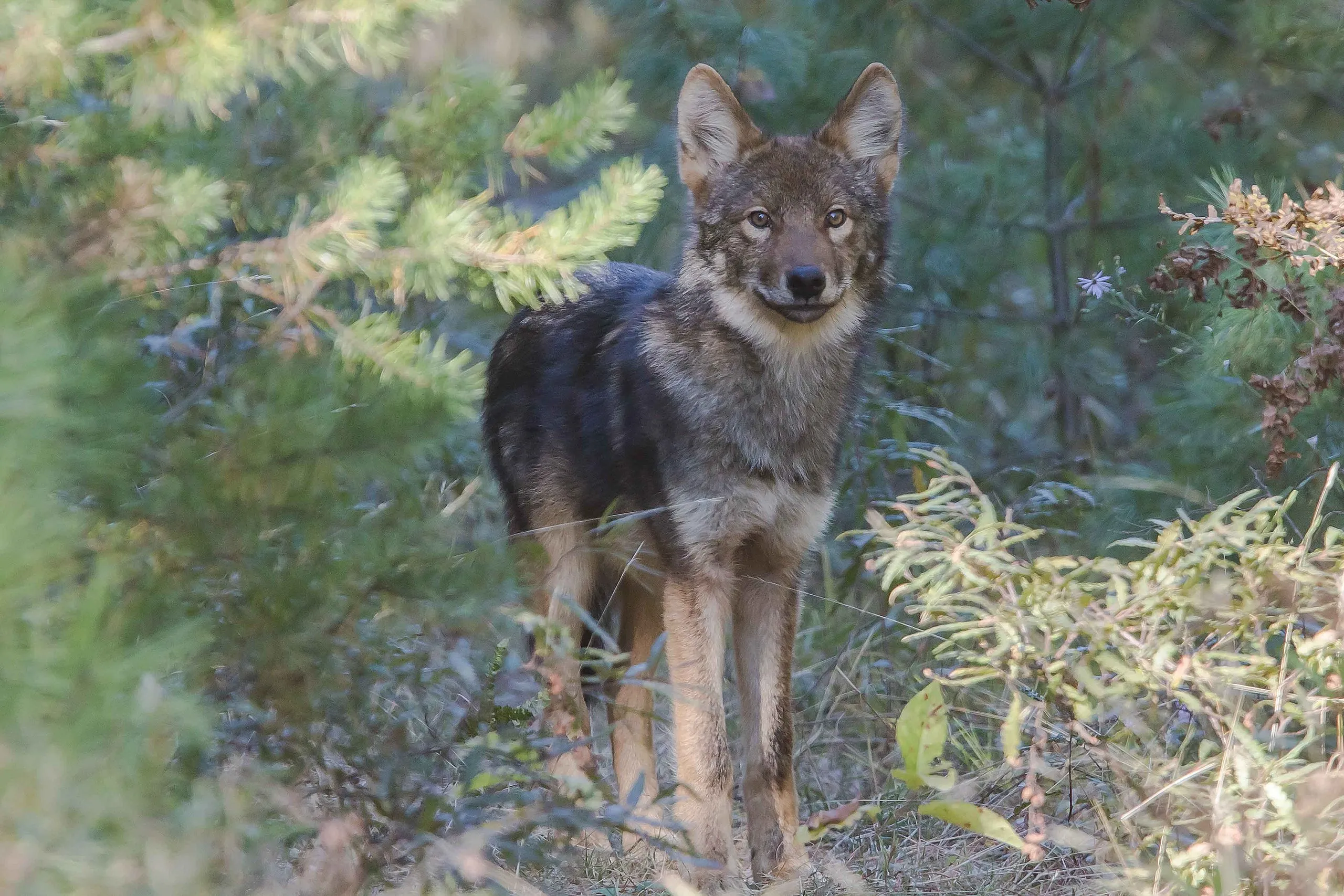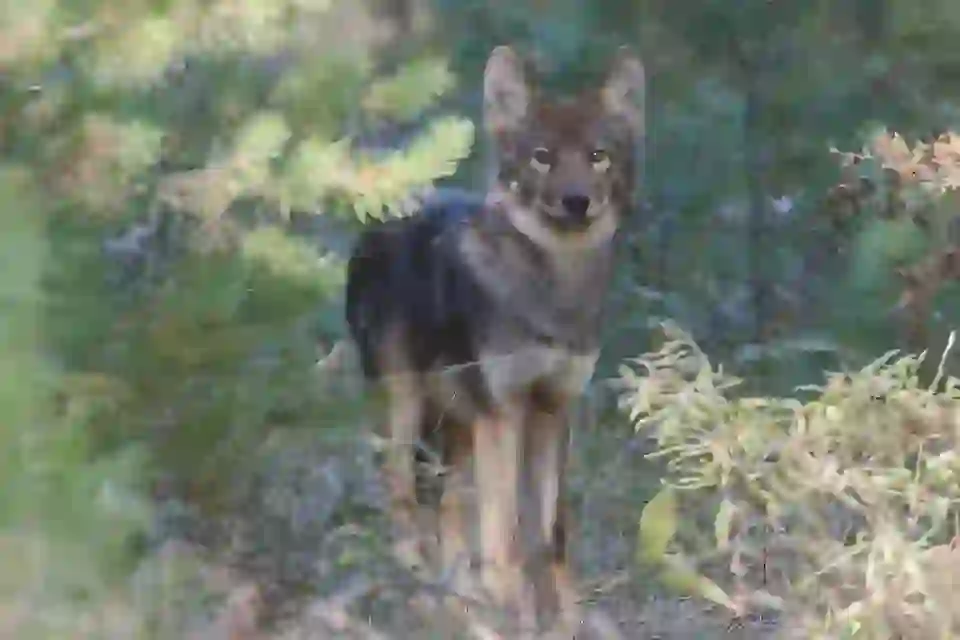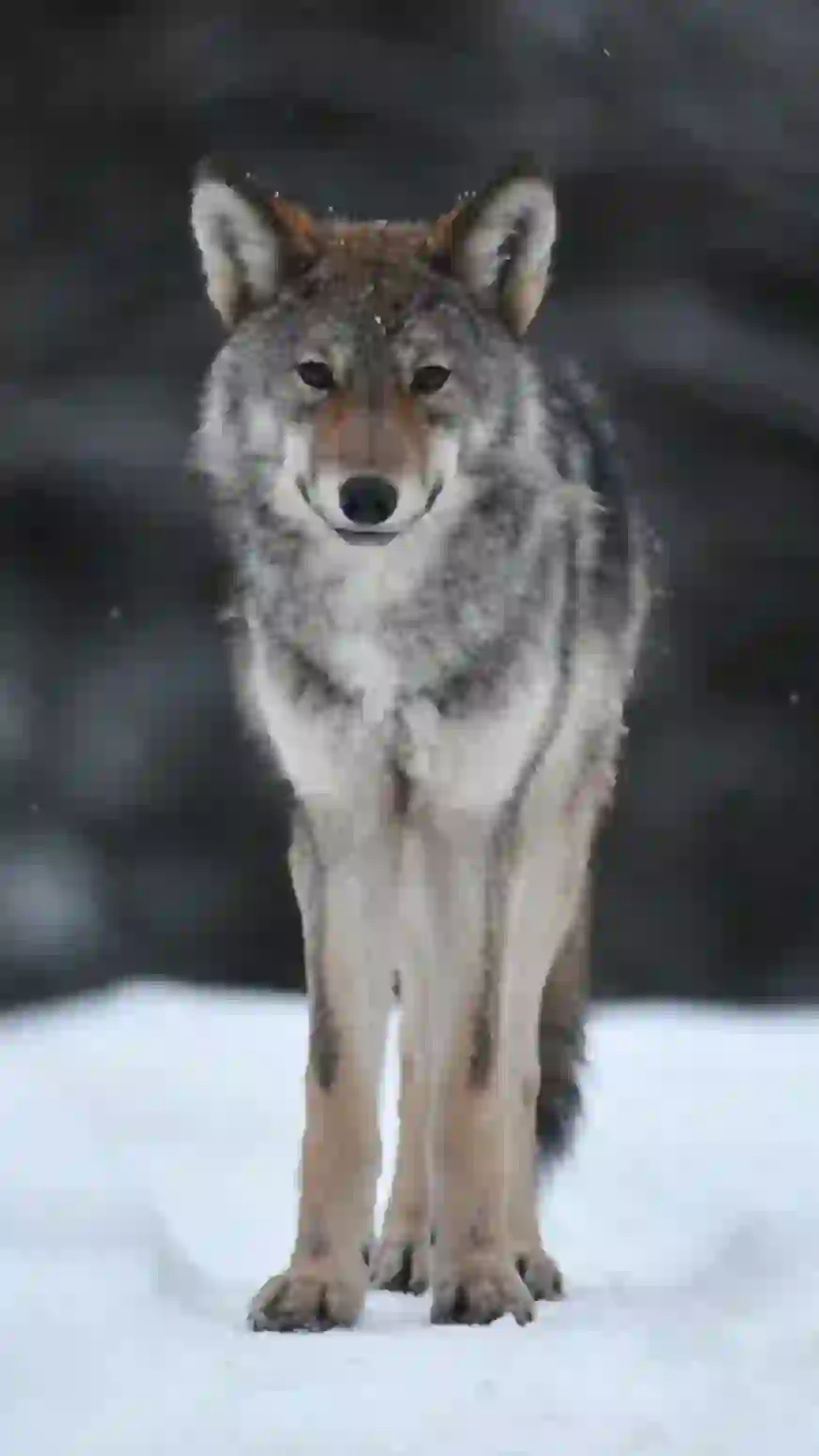
Eastern Wolf
Eastern Wolf
Eastern Wolf
In the vast forests of eastern North America, lives the enigmatic eastern wolf. This wolf, said to be a hybrid of gray wolves and coyotes, has an origin shrouded in debate. Let's explore the ecology of the eastern wolf and the mysteries surrounding them.
Eastern Wolf Basic Infomation

| Property | Value |
|---|---|
| Scientific Name | Canis lupus lycaon |
| Taxonomic Status | ACCEPTED |
| Rank | SUBSPECIES |
| Kingdom | Animalia |
| Phylum | Chordata |
| Class | Mammalia |
| Order | Carnivora |
| Family | Canidae |
| Genus | Canis |
| Conservation Status | Near Threatened |
| Species | Canis lupus |

Size
Adults stand about 24 to 30 inches (60 to 75 centimeters) tall at the shoulder and weigh about 55 to 88 pounds (25 to 40 kilograms). They are slightly smaller than other wolves. Males tend to be larger than females.
.webp?alt=media)
Lifespan
They live for 6 to 8 years in the wild and can live for over 10 years in captivity.

Distribution
They are found in the forests of eastern Canada and the northeastern United States. They were once widespread throughout eastern North America, but their numbers have declined, and they are now found only in limited areas.
Eastern Wolf Q&A

What kind of wolf is the eastern wolf?
The eastern wolf is a subspecies of wolf that inhabits the forests of eastern North America. They have gray or brownish fur, sometimes with black markings on their backs.
They are medium-sized and slightly smaller than other wolves. There has been long-standing debate about their origins, with theories suggesting they are a subspecies of the gray wolf, a hybrid of gray wolves and coyotes, or a distinct species. Recent genetic studies indicate that the eastern wolf is likely a hybrid of the gray wolf and the coyote. They are thought to have originated about 150,000 to 300,000 years ago through interbreeding between gray wolves and coyotes.
.webp?alt=media)
What do eastern wolves eat?
Eastern wolves are carnivores, primarily feeding on deer, but they also eat beavers, rabbits, rodents, and birds.
They hunt cooperatively in packs, allowing them to take down prey much larger than themselves. They are ambush predators, concealing themselves in bushes or behind rocks, waiting for prey to pass by. When prey comes within range, they pounce, using their powerful jaws and sharp teeth to make the kill. They also eat fish and occasionally fruits and berries. In the winter, when food is scarce, they may scavenge on carrion.

What kind of lives do they lead?
Eastern wolves live in packs, typically consisting of family units. The pack size is usually 5 to 10 individuals but can sometimes exceed 20.
The pack is led by a dominant male and female, called the 'alpha pair.' The alpha pair breeds and produces offspring. Other pack members include the alpha pair's offspring, siblings, and individuals that have joined the pack from other groups. Pack members cooperate with each other to hunt, raise their young, and defend their territory. They communicate using howls, body language, and facial expressions.

[Quiz!] How far can an eastern wolf's howl travel?
An eastern wolf's howl can travel up to… 6 miles (10 kilometers) away under favorable conditions!
They howl to communicate with each other, claim their territory, and locate prey. Their howls echo through the forests and valleys.
.webp?alt=media)
[Quiz!] Are eastern wolves dangerous to humans?
Eastern wolves rarely attack humans. They are shy and tend to avoid human contact.
However, human development has encroached on their habitat in recent years, forcing them to venture closer to human settlements in search of food. This has led to some conflicts between humans and eastern wolves. If you encounter an eastern wolf, do not approach or provoke it, and quietly leave the area.

[Quiz!] Are eastern wolves endangered?
The eastern wolf is listed as 'Near Threatened' on the IUCN (International Union for Conservation of Nature) Red List.
Their numbers are declining due to habitat loss, poaching, human-wildlife conflict, and hybridization with coyotes. To protect eastern wolves, it is crucial to conserve their habitat, prevent poaching, and promote coexistence with humans. It is also essential to prevent habitat fragmentation to reduce hybridization with coyotes.

Would you like to become a part of the 'Animalbook.jp'?
Turn your knowledge into Q&A and share it with the world. ※Publication will be activated after purchase. Let's share information together!
Eastern Wolf Type of List

Characteristics of Eastern Wolves
- Gray or brownish fur
- May have black markings on their backs
- Slightly smaller than other wolves
- Likely a hybrid of gray wolves and coyotes
- Primarily eat deer
- Live in family packs
- Near Threatened
Information
Congratulations! You are the first commenter!

Create Your Favorite List!
Eastern Wolf
Save the animals you love! Build your own list to quickly revisit your favorites later.

Would you like to leave a comment?
※Please note: This is for the purchase of rights to post comments within the article.
Find Your Favorites!
Our shop offers a unique and attractive selection of goods themed around various animals.
Eastern Wolf References
Eastern Wolf Introduction of media used

Michael Runtz, CC BY 4.0, via Wikimedia Commons

Henrique Pacheco, CC0, via Wikimedia Commons

Help Enrich Our Animalbook.jp with Your Media!
We are constantly looking to expand and enrich our Animalbook.jp with amazing photos and videos of animals. If you have any media that you'd like to share, please contribute and help us showcase the beauty and diversity of the animal kingdom. Your submissions will be credited and featured in our encyclopedia, reaching a wide audience of animal lovers.


















